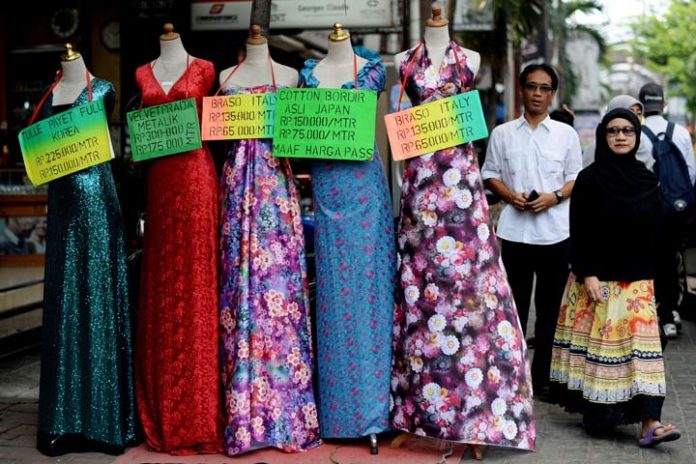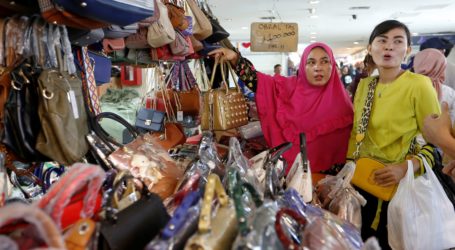Mystery over Weak Indonesia Spending

Jakarta, MINA – Almost four million new jobs, rising wages and eight interest-rate cuts in Indonesia should have been enough to spur consumers into action in the world’s fourth most populous nation, thestar.com reported.
Instead, an increasing number of people are keeping a tight grip on their purse strings and putting their money in the bank, leaving policy makers and economists perplexed.
“All the necessary factors for supporting consumption are there,” Indonesia’s Finance Minister Sri Mulyani Indrawati said last week in Jakarta. “This is something which is puzzling.”
It’s presenting a particular dilemma for the central bank, which has already taken aggressive easing action since last year without being able to lift private consumption growth much above 5%.
The door for further rate cuts is closing, as Bank Indonesia guards against currency weakness in the face of tighter US monetary policy.
Spending by consumers and businesses make up half of Indonesia’s gross domestic product (GDP), and sluggish growth is acting as a handbrake on South-East Asia’s biggest economy.
Don’t want to spend
Goldman Sachs Group Inc sees economic growth of 5.2% for this year being fueled by higher government spending, while private consumption growth and retail sales will remain relatively flat. President Joko Widodo had pledged to boost growth to 7% when he came to office three years ago.
“The problem is not purchasing power but the confidence to buy durable goods like cars and motorcycles,” said David Sumual, chief economist at PT Bank Central Asia in Jakarta.
“They have money, but they don’t want to spend, especially the middle-to-high income earners.”
While employment rose by 3.9 million in the year through February and average monthly wages gained 24% in the period, retail sales remain well below the double-digit growth rates of past years. Inflation has also been relatively benign, easing to 3.7% in September.
Sales of household equipment, such as electronics and furniture, contracted for a fifth straight month in August, dropping 8% from a year ago, data from the central bank show.
Despite consumer confidence near its highest level this year in September, retailers are feeling the pain. PT Matahari Putra Prima Tbk, one of Indonesia’s biggest retail chains, posted a loss of 170 billion rupiah (US$12.6mil) in the first half of the year. Sales at department store operator Ramayana Lestari Sentosa Tbk fell 0.5% this year through July, compared to a 6.9% growth during the same period last year.
Dody Budi Waluyo, assistant governor at the central bank, said in an interview on Oct 6 that the rate cuts will take time to take effect.
“The signal is quite clear,” he said. “We want the economy running much faster.”
Puzzled by the lack of spending, the finance minister ordered a team to examine consumption among various income groups, which found the problem lies among the middle class and high income earners. (T/RS5/RS1)
Mi’raj Islamic News Agency (MINA)






